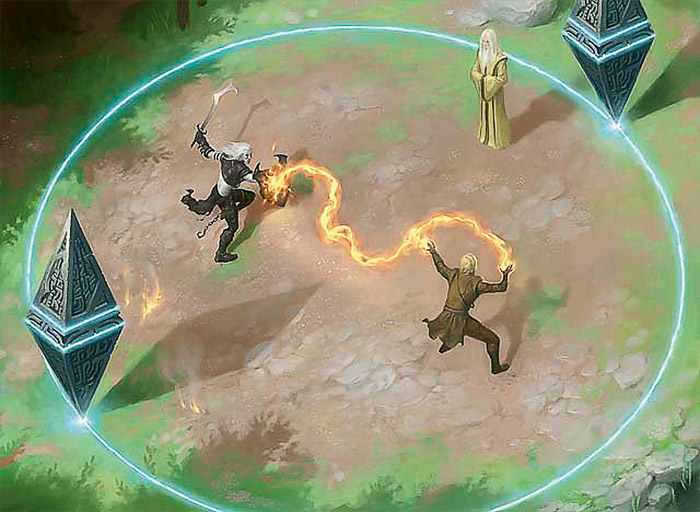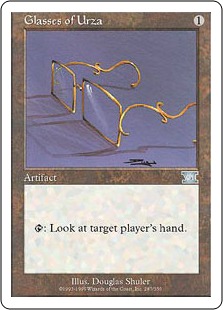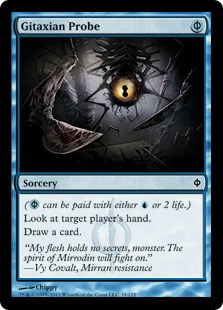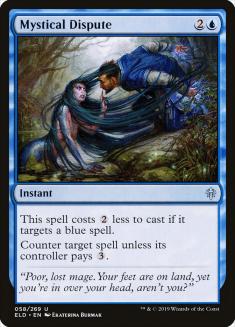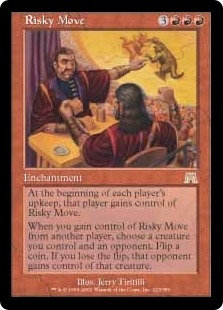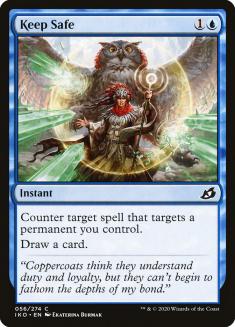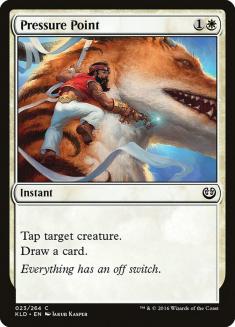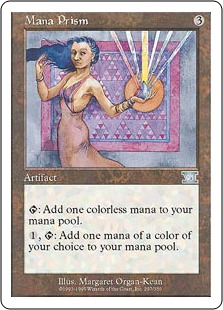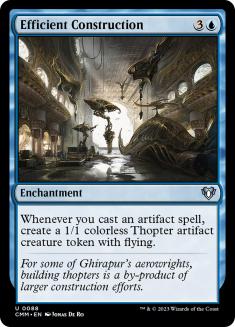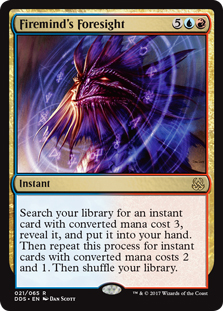I was thrilled to Top 8 the Grand Finals this past weekend for a bunch of different reasons. Getting a top finish like this alongside my testing partner and dear friend Emma Handy was one of those things you dream of (even if associated tackle-hugs will have to wait for a hopeful in-person repeat of this type of accomplishment). On top of that, on a personal level getting such a great finish in the most prestigious event since quarantine hit has served as a nice culmination of all the work I’ve been putting in to up my game in these several months since World Championship XXVI occurred, and whilst there are still moments throughout the Grand Finals where I recognise I can improve further I am still proud of my play and performance there in a general sense.
Originally I was going to write about the Historic Omnath, Locus of Creation deck I put so much work into refining, but with that card now banned from the vast majority of Arena, I figured this was the perfect opportunity for a change of pace for this week’s article. So instead, I’m going to cover some of the tactical concepts that I feel like I’ve personally had a lot of growth in these last several months in the hopes that maybe you can find areas to improve in yourself.
Look, Gitaxian Probe was banned in multiple formats. Whilst it’s not something that deserves a great deal of mana or physical cardboard invested into it – it’s not like Peek sees any real play after all – the informational advantage is incredibly powerful and useful. A big part of the premise of Magic is that there is asymmetrical information, that you don’t know everything your opponent has access to, but the truth is you can figure out a huge amount of what is actually going on on the other side of the table and I don’t see this discussed in any real depth.
This is curious because I think gaining informational advantage by intuiting details of your opponent’s hand was one of the biggest edges you could get in the Temur Reclamation mirror which was the most important matchup in Core Set 2021 Standard for a few weeks over the summer. One player realising a couple of cards can’t be in their opponent’s hand is not flashy enough for coverage or most viewers to pick up on though, especially as it leans so much on extremely transient, and somewhat uncertain, information.
It’s never really a part of the narratives we associate with Magic, even though it should absolutely be a part of how you play competitively, especially with a lot of tournaments being open-decklist now, where it is easiest to figure out the composition of your opponent’s hand because you know the exact pool of cards it can be drawing from.
The biggest step you can take towards gaining informational advantage is to start understanding the dynamic of individual matchups with whatever deck you play, and to combine this with asking questions to be able to piece a picture together in your head of what’s going on on your opponent’s side of things.
Understanding matchups in this context means you want to know how your opponent most wants their cards to line up against yours, and when they’re most hoping to cast their cards. What interactive spells do they have, how do those line up against your threats, and how is your opponent going to prioritise using those interactive spells in certain contexts as a result? What threats do they have, what sequence are they most interested in deploying them, and where do those cards sit on their deck’s mana curve? Are there any cards in your deck that they’re going to aggressively cling to answers for, such that it’s harder to get a read on whether they don’t have a certain answer in hand or whether they’re just trying to hold onto it for as long as possible? Being able to figure out how your opponent likely sideboards is a big part of this understanding too, as the exact details are certainly going to change once sideboarding has occurred.
Once you understand the matchup, you’re in a position to start asking questions about what is happening in the game you’re playing. Say your spell resolved against a blue deck; how important and impactful was that spell? What things could have countered it and how important are those cards for your opponent? If your spell was a creature, did it then live or did it eat a removal spell soon after? You’re looking to ask as many questions in rapid succession as possible such that you can logically eliminate cards from your opponent’s hand or get a rough feel for how likely those cards are to be over there.
Every time your opponent takes an action, ask yourself why they’re doing so. Every time your opponent doesn’t do anything, try to parse what that means. With most people restricted to playing at home, online, for the time being, it’s the perfect time to start vocalising your thoughts and intuitions to yourself on the actions your opponent is taking; you’d be amazed how much more information you can glean once your start exclaiming seemingly obvious things like “they didn’t kill my creature” to yourself.
Let’s say you follow these lines of questioning and decide it’s extremely unlikely your opponent has a Mystical Dispute in hand. This means a few things. First, you get to start more aggressively casting cards that would line up poorly against Mystical Dispute, since you’re unlikely to be punished for this. Second, the mental model of your opponent’s hand as not containing Mystical Dispute needs to be gradually blurred turn-by-turn; every draw step your opponent is going to be, let’s say, around 5% to draw a Dispute into their hand, so every turn that passes, that information on their hand can be relied on a tiny bit less. This matters an almost irrelevant amount over the course of one or two draw steps, at least if there’s no reason not to be supremely cautious, but starts to become a significant distortion once your opponent has seen a few new cards.
Third, though, is that every card that you’ve not eliminated from your opponent’s hand is now more likely to be in it. Those four cards they’re holding over there have to be something, and if you decide over a process of elimination that it doesn’t make sense for them to be counterspells, or their strongest threat, or a piece of cheap removal, then suddenly the range of what could be in their hand is so slim that you can often work out what it is as a result. Process of elimination on this stuff is really powerful because if you’re confident on what those cards can’t be, and it turns out it doesn’t contain the cards you’re scared of that do make sense to be over there, that likely means your opponent is sitting on a hand full of lands; this means you can choose to play around the slim range of cards you believe your opponent has, and if you’re wrong, then your opponent is unlikely to be able to punish you for this because they’re actually just flooding.
Related to informational advantage, something I believe many players do too often is decide a card is in their opponent’s hand and then proceed to not present any opportunities for that card to be good. Sometimes you’re 90% sure they have a Mystical Dispute but you should still just jam your blue spell into it anyway; if the Dispute is just going to be great against you for several more turns, trying to play around it forever is too big a cost to incur. Sometimes it will be better to get the Dispute out of the way this turn so it’s less likely they have a counterspell for your follow-up haymaker next turn. Don’t be tricked into thinking that, just because you have information, you have to obey that information.
Relatedly, and getting to my next big point, sometimes you’re 90% sure your opponent has that Mystical Dispute in hand, and if they do and you run your spell into it then you essentially lose the game, but you’re so far behind that there’s no choice but to jam. I talked a lot in regards to Temur Reclamation, when I was writing about that deck, about the concept of this sense of pressure that exists within a game that slowly builds and forces you to take riskier and riskier actions, as that deck’s mirror matches reflected this concept really well, but this concept extends to most games of Magic and deserves explaining somewhere that isn’t buried in the depths of a matchup guide for a now-gone Standard deck.
When you’re far ahead you want to take on extremely few risks. Play around cards your opponent could have, don’t make plays that have a chance to turn out poorly for you, and just take the lines that keep pushing your advantage and that snowball you towards victory whilst giving your opponent the smallest possible window to take risks of their own to get back into the game.
When you’re far behind, this situation inverts. Get scrappy, take as many risks as possible, and be willing to make bold, outlandish plays. If you reckon you’re 10% to win a game, you certainly aren’t upping that percentage by playing around cards and respecting what could be in your opponent’s hand. You win those sorts of games by hoping your opponent just has nothing and is drawing nothing. Be ready to reassess, quickly, because with this sort of attitude that 10%’er can quickly turn to feeling even or even favoured for you, calling for you to change to a more tactful, reasonable approach on a moment’s notice, but there’s only one way you’re getting to the point of having a luxury such as breathing room.
I like to think of individual games of Magic as having this sense of pressure within them, where the atmosphere grows more and more tense based on what is happening. The more threatening permanents your opponent has on the battlefield, the more mana they have, the more cards they have in hand — these things create this feeling that the air is heavy and the battlefield is bearing down on you. The more this tension and sense of pressure grows, the further behind I start to feel and the more I feel like I have to act, whereas when my opponent is falling horrendously far behind to some planeswalker of mine the air feels light and breezy. Try to find this feeling yourself and use it to guide how dangerous or safe you’re willing to make your lines within any individual game.
One of the earliest level-ups a lot of players will have if they want to learn to play Magic well is the notion that on any particular turn they should seek to maximise their mana usage. Sure, your three-mana spell might be more exciting than your four-mana spell this turn, but if you cast your four-mana spell instead it will often end up paying off in the long run since more expensive spells are harder to find time to deploy. This is one of those fundamental heuristics of competitive play.
Like all heuristics, it’s a fine principle to keep in mind and to default to when in doubt, but it’ll break down under scrutiny from time to time. Sometimes the big-picture view of what this particular game of Magic is actually about means deploying the more expensive spell ends up being far too low-impact in practice; similarly, sometimes your more expensive threat is going to deal less damage across the next couple turns than your cheaper one and maybe pushing those extra couple points of damage is all that really matters. I think, generally, these sorts of realisations that there is more to your decisions on what to cast than just being efficient have led to most serious competitive players over-correcting in the other direction and caring too little for this heuristic of efficient mana usage.
The big realisation to come to is that you can take the principles behind this heuristic and apply those a huge amount of the time instead of using the heuristic itself. This is a lot more work, but really fun and effective too. The core principle for why this heuristic helps out players who are new to the game so much is that if you’re using all your mana this turn, then the odds are you’re casting your most expensive spells, which means that next turn you’ll have a bunch of cheaper spells still left in hand so that it’s easier to mix and match the costs to use all your mana yet again. It’s much easier to double-spell on a future turn with that three-mana spell than that four-mana spell; meanwhile, one- and two-mana spells are secretly premium for helping fill in gaps when needed.
So, why not just apply this principle on a base level rather than turning it into a simplified heuristic? Long-term, what this looks like with plenty of practice, is that you don’t look at the cards in your hand and try to maximise your mana usage this turn. Instead you find a way to plan out things so that you’re maximising your mana usage this turn, next turn, and possibly even the turn after, whilst being accommodating both for whether you may topdeck that extra land drop and how that will shift things and also recognising how potential plays from your opponent might make you prefer to plan out this mana usage in different ways.
To the first point of trying to accommodate further needs, being able to know you’ll be spending all your mana next turn regardless of whether you draw a land or not is incredibly powerful. To the second point, if you know your opponent could cast a scary creature next turn that you’ll have to Thundering Rebuke as soon as possible, having the flexibility of knowing you can Thundering Rebuke next turn whilst still being guaranteed to use all your mana can be worth having this current turn of yours be a bit less impressive or efficient than you’d necessarily like.
If this isn’t a skill you’ve already developed, next time you’re playing and you have a tough choice on what to cast with a few appealing options in hand, try working out what you’d ideally like your next turn to look like in regards to mana usage and this will often be able to help inform this turn. All these extras, looking a couple of turns ahead, taking into account potential resource variance with your mana, recognising plays you’ll likely have to make based on your opponent’s potential plays – all this stuff comes with time and practice, but even just being able to look a turn ahead when planning your mana usage gets straight to the heart of why the heuristic that has been built on these principles has historically been so powerful.
I hope that somewhere in this article you’ve found a new perspective on how to look at and approach games of Magic. It’s a bit different from my usual writings, but strange times and all that, and I’m sure I’ll be back with a deck guide of some sort at some point soon.

